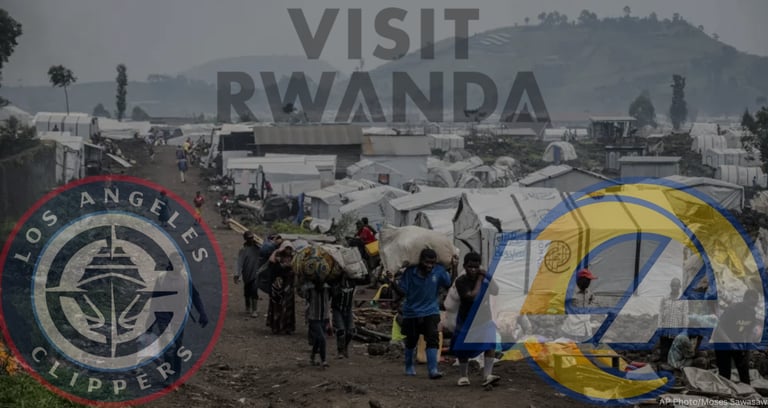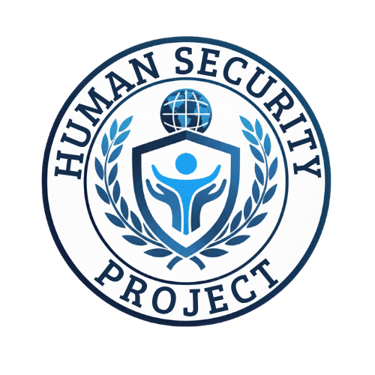Every Logo Has a Shadow: How "Visit Rwanda" Masks a War in the Democratic Republic of Congo
Bukasa Kabwe
11/14/20254 min read


At the end of September 2025, the Los Angeles Rams and LA Clippers announced a multi-year sponsorship deal with the government of Rwanda to promote its “Visit Rwanda” campaign via stadium signs, exclusive jersey patches, and merchandise. This announcement follows previous Visit Rwanda sponsorship deals with other professional sports teams, including Arsenal, Paris Saint-Germain (PSG), and Atlético de Madrid, furthering Rwanda’s global image-building machine.
On the surface, this looks like a celebration of African tourism. But to millions of Congolese who have bled and continue to bleed because of Rwanda’s military incursion and proxy wars in the Democratic Republic of the Congo (DRC), these sponsorships are stained with the dust of unmarked graves.
When I read this announcement, as a Congolese, sitting in Beni, Eastern Congo, having been forcibly displaced by Rwanda-backed M23 violence, I felt what I can only call a wound reopening. In my recent Book, La Paix Dans Ma Chair (Peace in my flesh), I write: “Peace entered my body through scars. It was not given to me; it was carved. That is what it means to be Congolese today: to live peace as something engraved in flesh, not printed on a billboard.”
The Rams and Clippers have the power to make a moral choice, to suspend their partnership until Rwanda ends its support for M23 and engages in transparent peace efforts. Such a gesture would not be anti-Rwanda; it would be pro-humanity.
Rwanda’s involvement in Eastern Congo is not speculation. It is one of the most exhaustively documented crimes of our time. Several United Nations Security Council Group of Experts and Human Rights Watch reports confirmed Rwanda’s direct military support to the M23 militia, including cross-border operations, supply of weapons, and recruitment of Rwandan soldiers. Even the United States, a longtime supporter of Rwanda, has confirmed Rwanda’s backing of M23.
The Eastern provinces of the DRC–North Kivu, South Kivu, and Ituri–have become a labyrinth of displacement and despair. More than seven million people are now internally displaced within the DRC, including nearly three million displaced in North Kivu where Rwandan-backed M23 militia have focused their assaults. Displacement camps across the region stretch endlessly, dotted with plastic tarps that flag like ghosts when the wind rides from Lake Kivu or from the Nyiragongo volcano.
Last year, in one of these camps near the city of Beni, I met a young boy named Tshimanga. He had lost both parents in an M23 attack. When I asked him what peace meant, he replied, “peace is when we can sleep without listening.” How can I explain to him that while he sleeps in mud, the same government that armed his killers is celebrated on NBA courts and in NFL stadiums under the bright slogan of “Visit Rwanda”?
In another displacement camp in Nyiragongo, I met a woman named Shukuru, who showed me her shelter made of sticks and UN tarpaulin. Her husband was killed when the M23 rebels seized the area. She whispered to me, “My children draw peace with stones on the ground. They think it will make it come.” Those children’s drawings haunt me. They are maps of a future the world refuses to help make a reality.
Behind this war lies an economic engine: the illegal extraction of gold, coltan, and cassiterite from Congolese soil. According to the US Department of State, these critical minerals are tracked through Rwanda and Uganda, feeding global supply chains for electronics, weapons systems, and luxury goods. This war is very profitable for some individuals and corporations at the expense of Congolese lives.
I saw the consequences of this mineral-fueled war myself first-hand. In 2024, when M23 advanced toward Goma, my family and all families in our community fled in panic. Most of us carried no luggage and went out of the city. My wife and I carried only our passports. That day, the road was full of people running for their lives.
Rwanda's government, led by President Paul Kagame, had mastered the art of image control. Through the “Visit Rwanda” campaign, he has built a brand synonymous with progress and safety, a stark contrast to its record of political repression at home and aggression abroad. Inside Rwanda, journalists, activists, and opposition figures face harassment or disappearance. While its troops and proxies perpetuate a brutal war in neighboring Congo. The government invests millions in sponsorship deals to polish its image and gain legitimacy through sportswashing.
Sportswashing, using sports to cleanse the image of injustice, is not new. Saudi Arabia and the United Arab Emirates do it through soccer; China through the Olympics. Rwanda now does it through basketball, football, and American sports entertainment. Sports are not neutral. They are vessels of culture and influence. When global franchises accept partnerships with oppressive regimes, they become accomplices in those regimes’ propaganda.
It is a strategy of contradictions: repression at home, marketing abroad. In Kigali, critics vanish; in Los Angeles, Visit Rwanda logos shine beneath stadium lights.
I wonder how the owners and fans of the Rams or Clippers would react if, instead of visiting Rwanda, they visited the displacement camps in the DRC. If they saw the faces of the people whose lives are erased by the very government they now promote. Every sponsorship carries a moral footprint. Every logo has a shadow.
Despite several claims by President Trump that he ended the war in Congo, he did not. The war, especially violence against civilians, continues to be as bloody as it ever was. The Congolese people need a durable peace, not platitudes and false agreements. And US sports franchises aiding Rwanda in sportswashing its image is not helpful.
I call upon athletes, fans, and influencers to use their voices. Let us transform visibility into accountability. Let us ensure that the next logo we cheer for does not hide another people’s suffering. Because in the heart of Africa, there is a land bleeding in silence. And its people, my people, are still waiting for the world to see them.
Bukasa Kabwe is a Congolese writer, editor, and pan-african researcher in peace, security, and human rights.
Human Security Project
Delivering bold, actionable interventions to prevent violence, protect people, and build human security.
Connect
Engage
© 2025. All rights reserved.
